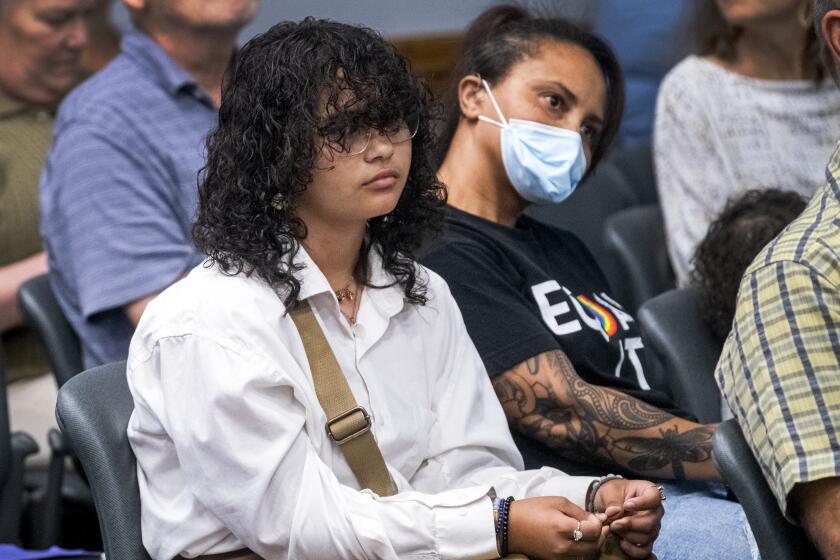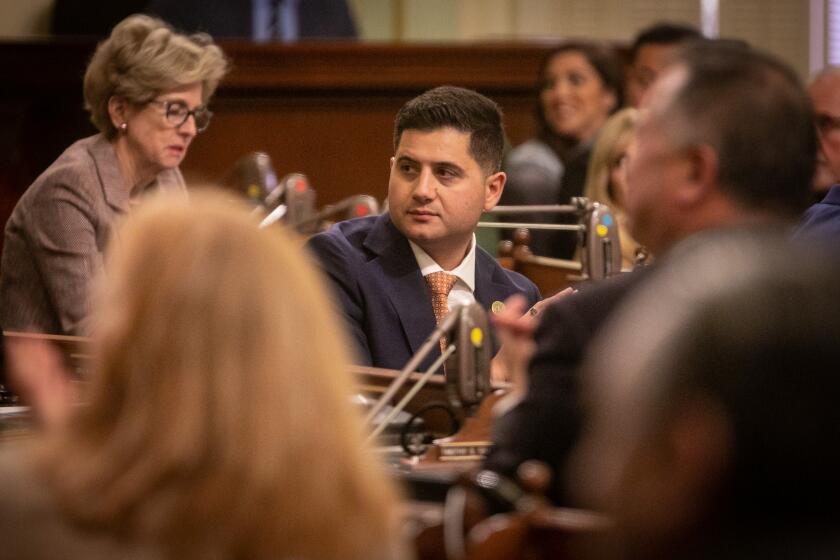Newsom vetoes bill requiring custody hearings consider affirmation of child’s gender identity

Gov. Gavin Newsom on Friday vetoed a bill that would have asked judges presiding over custody battles to take into consideration a parent’s support for their child’s gender identity — a culture war flashpoint that has drawn vocal criticism from the right.
Assembly Bill 957 would have adjusted California law to instruct judges to consider, among other factors, a parent’s affirmation of a child’s gender identity or expression when determining custody or visitation rights.
In a message accompanying his veto, Newsom wrote that he appreciated the motivation behind the bill and shared “a deep commitment to advancing the rights of transgender Californians.”
“That said, I urge caution when the executive and legislative branches of state government attempt to dictate — in prescriptive terms that single out one characteristic — legal standards for the judicial branch to apply,” he wrote. “Other-minded elected officials, in California and other states, could very well use this strategy to diminish the civil rights of vulnerable communities.”
Courts, he added, are already required “to consider a child’s health, safety and welfare when determining the best interests of a child in these proceedings.”
New policies requiring schools to notify parents if a student is gender-nonconforming are seeping into campus culture in ways some students find dangerous.
Assemblymember Lori D. Wilson (D-Suisun City), who introduced the bill, said in a statement that she was disappointed with Newsom’s decision to veto.
“I’ve been disheartened over the last few years as I watched the rising hate and heard the vitriol towards the trans community,” Wilson said. “My intent with this bill was to give them a voice, particularly in the family court system where a non-affirming parent could have a detrimental impact on the mental health and well-being of a child.”
State Sen. Scott Wiener, a principal co-author of the measure, called the veto a “tragedy” and said the decision stood in contrast to Newsom’s past advocacy for the LGBTQ+ community. He said the bill created a modest and commonsense guideline.
“Our job as legislators is to set clear standards for judges to apply and that’s what we did here,” said Wiener (D-San Francisco).
Some state lawmakers, however, applauded the veto.
“This is fantastic news and the right call,” Assemblymember Bill Essayli (R-Corona) wrote on social media.
Assembly Bill 1314, which would have required California schools to alert parents if their child is transgender, won’t get a hearing in the Education Committee.
The bill has drawn criticism and sparked controversy, including among conservatives who claimed it would force parents who do not support their child’s gender identity to give up custody rights.
However, the text of the bill does not specify whether a child needs to be on puberty blockers or have undergone surgery to be affirmed by their parents. Such affirmation, according to the bill, could include a range of actions and be uniquely tailored, as long as it promotes a child’s overall health and well-being.
The bill now returns to the California Legislature. A two-thirds vote in both chambers would be necessary to override Newsom’s veto. The legislation initially passed the Assembly and Senate by margins exceeding that threshold.
Transgender rights advocates say new laws can do only so much if they aren’t properly implemented and funded, and designed to help the community’s most vulnerable members.
Also on Friday, Newsom vetoed Assembly Bill 1306, which would have prohibited the state Department of Corrections and Rehabilitation from providing information regarding the release of an incarcerated noncitizen to U.S. Immigration and Customs Enforcement.
In a veto message, Newsom wrote that he believes “current law strikes the right balance on limiting interaction to support community trust and cooperation between law enforcement and local communities.”
“However, as an administration, we recognize that improvements in this process are important. CDCR will limit how it communicates with ICE as a federal law enforcement agency, so information is only provided to ICE when a non-citizen individual enters prison and is approaching their release date,” he wrote. “ICE will determine how it will proceed with its enforcement of federal law.”
More to Read
Sign up for Essential California
The most important California stories and recommendations in your inbox every morning.
You may occasionally receive promotional content from the Los Angeles Times.













